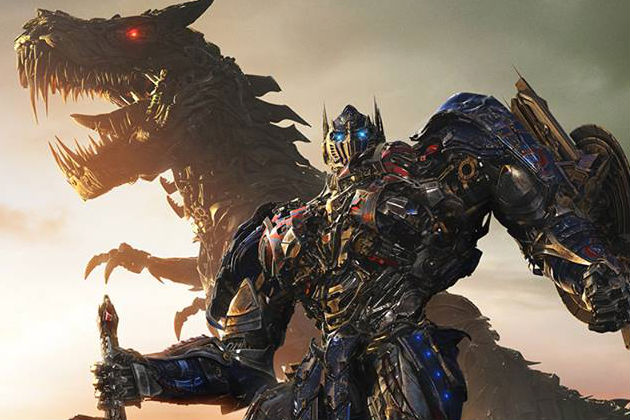What’s the quickest way to get a writer riled up? Bring up your writing process. There is nothing writers are more protective over, or feel more passionate about, than what is the proper way to write a script.
Go ahead, invite a few writers over and ask their opinion on outlining. Make sure to hide anything sharp beforehand. One writer will tell you outlining is essential and that there’s no possible way to write a good script without one, while the next will angrily defend the natural process of discovery that comes from free-form writing.
This kind of debate extends to structure, to theme, to characters. Writers always have strong opinions about these things and will fight other writers tooth and nail to prove that they’re right and you’re wrong.
If you ever find yourself in this situation and need to defuse it quickly, I have a solution. There is one thing that every single screenwriter in the world can agree on. That the Transformers movies are the worst written movies ever.
I don’t like to rail on films. I really don’t. But something about this franchise angers me. Transformers is the epitome of what’s wrong with the Hollywood system. The films are the poster-children for style over substance and a black eye for a trade that already struggles to be taken seriously.
How can you be proud to be a screenwriter when your peers are pushing this garbage onto the masses? Transformers is the leading generator of the all-to-familiar line: “I could’ve written something better than that.” It makes us all look like fools.
The crazy thing about all this? Transformers 4 is going to be the biggest movie of the year. If I’m a producer reading this entry, that’s exactly what I’m saying. “Yeah? Well if it’s so terrible, why is everyone going to see it?”
That’s a good question. And I don’t think we’re doing our jobs as screenwriters unless we’re trying to answer it. Because those producers are right. People are eating these movies up. And I don’t think it’s as simple as saying, “Yeah, that’s because people are idiots.”
There are idiots out there. But audiences vote for quality more often than they vote for crap. The Avengers, Toy Story 3, Avatar, The Dark Knight, were all #1 movies from years’ past. Those films were loved by both critics and audiences. But Transformers 4 is rolling by on a mere 17% Rotten Tomatoes score. So why is this happening? What is this film doing that’s making its awful script so insignificant?
 Bonus Question: Is Shia better or worse off without the Transformers franchise?
Bonus Question: Is Shia better or worse off without the Transformers franchise?
Believe it or not, Transformers DOES do something right. You’ve heard it a million times from me but it never hurts to hear it again, since it’s the most crippling mistake a writer can make.
Write something that people will actually want to see.
Transformers is one of the coolest straight-up ideas ever. Note I didn’t say “concept.” There’s no concept here. This is an idea. But it’s such a great one, that it alone is responsible for 50% of the film’s success. Cars that turn into robots? Boys love cars. Boys love robots. Having the two transform into one-another? It’s genius. It’s the only toy idea that’s ever been announced as a movie where I’ve gone, “What took them so long?” The idea alone is a billion dollar idea.
This is important to note because a script is the sum of its parts. Assuming each part is given a number value from 1-10, your goal is to get as many high numbers for those parts as possible. If one part is a 2, that doesn’t necessarily mean your script is screwed. You could get a couple of 10s, and you’ve still got something pretty good. What nobody ever talks about, though, is that “idea” or “concept” is a weighted number. It’s more important than all the other numbers combined.
So when you go through the number values of Transformers’ parts, you get this: story = 0, characters = 3, dialogue = 1, structure = 2. You’d think the film couldn’t possibly survive numbers that low. Except when you get to “idea,” Transformers is a 100. Which means the sum of the parts is still high.
Another thing Transformers has going for it is it’s the ultimate “edgy” family movie. There aren’t too many movies that an entire family can go to and enjoy. Pixar films are the gold standard. But what if you have a 14 or 15 year old who thinks those movies are too sweet and saccharine? They’re not “cool” enough. Transformers is the perfect “next step up.” It’s edgier, yet still light enough that you can bring your 9 or 10 year old as well. I don’t have kids. But if I did, I could see my son wanting to see this movie and me shrugging my shoulders with a, “Hey, at least I get to see some awesome special effects.”
Here’s what I don’t understand though. Why CAN’T Transformers be a good story as well as a great action film? What’s preventing it from being both? Isn’t it a screenwriter’s job to take an idea and figure out a way to create a fully-fleshed out compelling story?
Look at Phil Lord and Chris Miller, the writers of The Lego Movie. That source material had WAY less to work with than Transformers, and they turned in a fun heart-warming action movie. What’s preventing Transformers from doing the same?
Besides the obvious (the director, Michael Bay, isn’t interested in the script), the reason they haven’t been able to do this is because of the mythology.
Mythology is the set of rules and backstory you create for your artificial worlds. It’s a crucial, often under-discussed, component in writing sci-fi or fantasy. If you don’t set up a set of rules for your world that makes sense, nothing you write on top of those rules will matter.
The mythology behind Transformers has never made sense. A group of alien robots come to earth to… turn into cars? Why?? It’s so silly, it’s ridiculous. By trying to stick with that mythology, the writers screwed themselves. Everything you build on top of “ridiculous” will be even more ridiculous! Screenplays need to be built on stable ground, not fault lines.
If you want to see mythology done right, watch The Matrix. There’s a lot of exposition in that movie. But after it’s all over, you understand why all the characters can do what they do. We know Neo can defy gravity but can’t breathe fire. The mythology has made that clear to us.
Once your mythology is set up, the next step is structure. Transformers fails spectacularly in this area as well. First off, each of its movies is well over 2 hours long. That alone tells you how little the writers (or producers and director) understand structure. The whole point of structure is to generate form, to give its subject a container. If you ignore it, your characters and story go off on numerous tangents.
Yesterday, Miss Scriptshadow confessed she’d been struggling with structure and wanted to know how I defined it. I explained it this way. Imagine Ferris Bueller’s Day Off. But all you have is Ferris and Cameron. You don’t have the “day off” part. You just have two characters who are friends.
An “unstructured” script would show these two going to class, eating lunch, maybe getting into trouble after school. It would be a series of unconnected scenes. “Structure” is when you add the “day off.” Now your characters have purpose, have a goal, have something to do. They must try to outwit the principal and get away with ditching school for a day. That simple addition of a container is what gives the script structure.
From there, you create little mini-movies (mini-goals) inside of the script to keep the story focused. First, Ferris must get Cameron on board for his plan. Then he must find a way to get his girlfriend out of school. Then they must have lunch at the best restaurant in town without getting caught. These little mini-movies keep everything contained and focused, and consequently, give the script momentum.
Nobody seems to know this in Transformers. Instead of clear focused goals, multiple characters have loads of unclear foggy goals, which continue to stack up on top of each other without clear resolutions. Characters do things without a point. There are long passages where we’re not sure why things are happening. The whole point of structuring something (typically through outlining – ahh! Sorry! I know you non-outliners hate that) is to prevent this. To give the story direction.
I know this isn’t a black and white issue. The industry will argue that any hit movie is good for the movie business. And studios will say that the Transformers’s on their slate are what allow them to make more challenging films like Black Swan and Silver Linings Playbook (although I wonder about this, since they were able to make these types of movies just fine well before Transformers came around). So I’m curious which side you come down on here.
Are there any screenwriting lessons to be learned from Transformers doing so well (you’re not allowed to say “That people are idiots)? And do you think these films are necessary for studios to make the more meaty stuff? Or is that BS?


